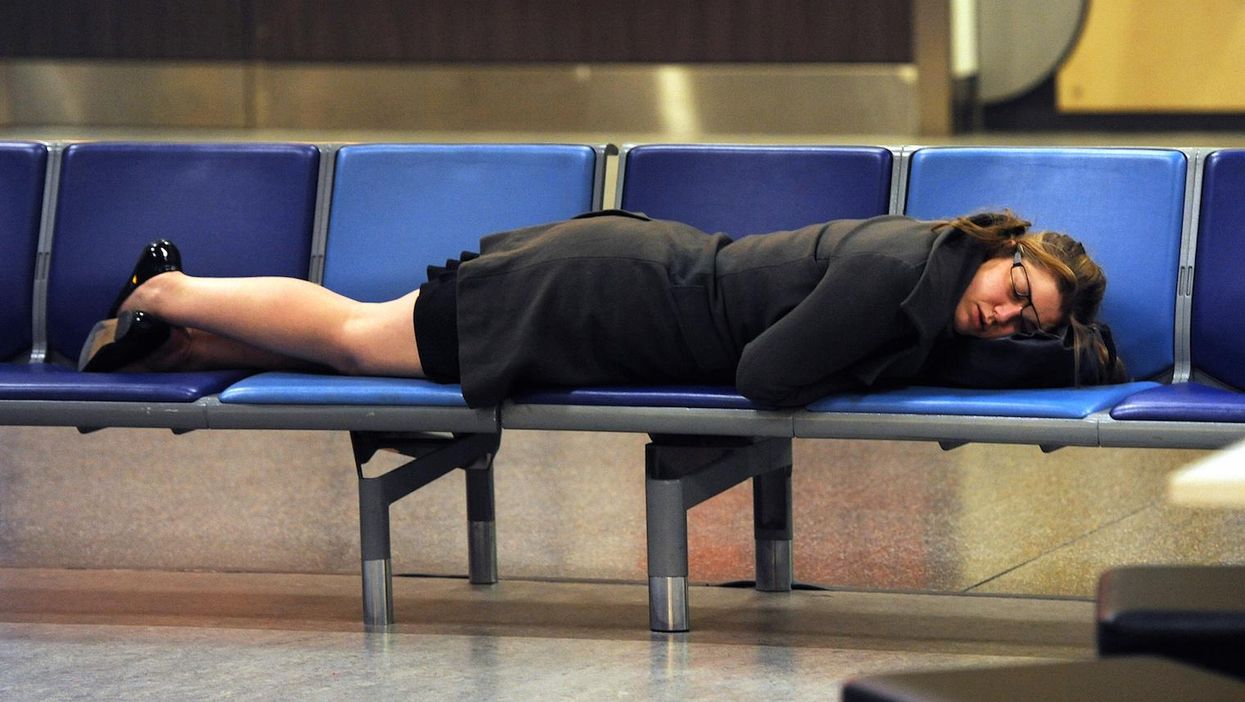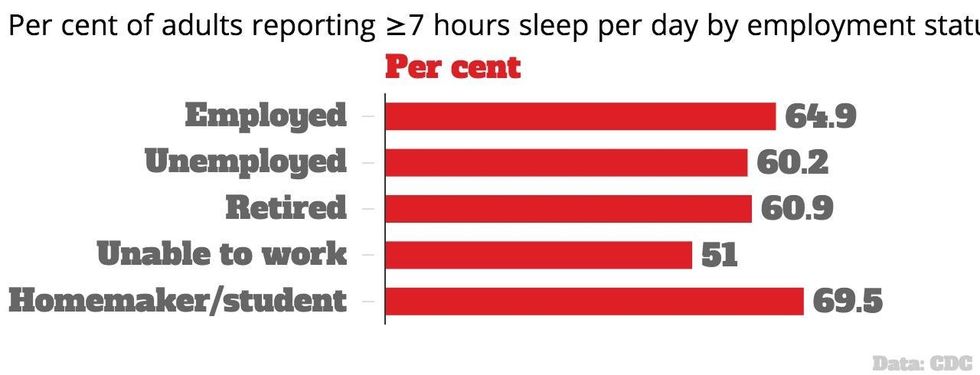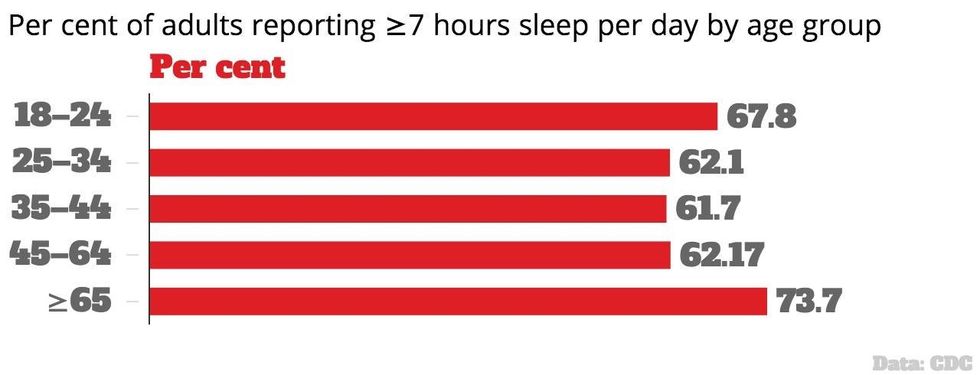News
Louis Dor
Feb 23, 2016

Picture: CARL COURT/AFP/Getty Images
Sleeping less than seven hours a night is already associated with a greater likelihood of obesity, high blood pressure, diabetes, coronary heart disease, stroke, frequent mental distress, and death.
A new report by the US Centre for Disease Control (CDC) has estimated that more than a third of American adults report sleeping for less than seven hours a day.
The study is the first of its kind to estimate prevalence of lack of sleep on a state-by-state basis, finding geographic clustering of self-reported low amounts of sleep in states and regions with high levels of obesity and other chronic conditions.
On average, 65.2 per cent of respondents reported they sleep for a healthy amount of time:
And people with more turbuent relationship, who've been widowed or divorced, sleep less on average thatn people in stable relationships or who have never married.
The study also found that African Americans, Native Americans, and Pacific Islander ethic groups and multiracial populations generally get more sleep compared to the rest of the US population.
The prevalence of healthy sleep was also affected by age group:
In terms of advice as to how to improve your chances of healthy sleep duration, the report advocated:
setting a pattern of going to bed at the same time each night and rising at the same time each morning;
making sure that the bedroom environment is quiet, dark, relaxing, and neither too hot nor too cold;
turning off or removing televisions, computers, mobile devices, and distracting or light-emitting electronic devices from the bedroom;
avoiding large meals, nicotine, alcohol, and caffeine before bedtime
In short, that advice your mum gave you about no fizzy drinks or games before bed was actually pretty good.
Top 100
The Conversation (0)
















